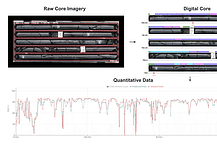TALGA Resources’ UK subsidiary Talga Technologies has gained funding under the UK Government’s Industrial Strategy Challenge Fund (ISCF) Faraday Battery Challenge to develop the company’s graphitic anode for solid state batteries.
The Faraday Challenge represents a £246m UK Government funding initiative for battery research, development and scale-up of facilities to help create a new supply chain for battery production in the UK and income from battery technologies.
Solid state battery technology has the potential to combine high energy and power with improved safety – using a solid state electrolyte made of polymer, ceramic or glass material instead of the (more flammable) liquid electrolyte of lithium-ion batteries.
Talga aims to replace the metallic lithium anode in solid state batteries by developing a new high capacity graphitic carbon composite anode, Talnode-E.
Talnode-E is designed to have multiple advantages including faster charge and higher power, easier processability, safer handling, highly scalable industrial manufacturing and lower costs.
Talga managing director Mark Thompson said the new anode product would join its range of advanced battery materials designed to provide leverage to current and emerging battery technologies, delivering ongoing opportunities for growth.
“We are seeing increased customer demand for solid state batteries, and have attained nondisclosure agreements with leading electronic and automotive companies looking to test our anodes based on our 100pc owned Swedish graphite supply,” he said.
Automotive manufacturers including Toyota, Volkswagen, Hyundai and BMW have declared the goal to incorporate solid state batteries into their vehicles by 2025, but while solid state batteries are theoretically capable of very high performance, in practice they can suffer a range of technical and commercial issues that have hindered development, particularly for larger scale applications like electric vehicles.
The development of the anode with metallic lithium can cause a bottleneck of issues leading to slower charge/discharge characteristics, safety issues both within the battery and in mass production, and higher cost.
Talnode-E is expected to enable Talga’s growth across current and emerging battery markets.
Mr Thompson said that securing the grant and partnerships with both commercial and R&D partners is another solid step in Talga’s advancements as a battery material and technology supplier.
“Again we are partnered with brand names in the battery supply chain, well-funded and with access to state of the art facilities, having utilised our well-developed network of innovative energy storage technology and material companies from our technology centre in Cambridge,” he said.
Talga’s anode development to address the industrial and fundamental challenges of solid state batteries will be supported by multinational speciality chemicals and sustainable technologies company Johnson Matthey, and leading battery research and development institute Sheffield University.
Talga will receive a 70pc reimbursement of its eligible costs, including salaries, consumables, equipment and contractor expenses in support of the project.








































